Hanna told me what she was researching and I wanted to help her to get the word out for her PhD – the topic is close to many of our members. Her research project www.Expatstudy.com on the relationship between expatriation and career success!! Does it help or hurt your career to expatriate… by the way, click on the photo above and you see her face…
Tell us about yourself- who are you and what is the “short story” of your life?
My name is Hanna Sophie Simmons and I was born and raised in Germany. My parents are avid travelers and took my 3 siblings and I all over the world from a very young age. This instilled in us an open-mindedness to other cultures and customs, which I am very grateful for. We simply aren’t afraid of new adventures and the experience of new places. Between High School and College I travelled to Hawaii, where I bumped into a handsome American guy at a party. Little did I know we would shortly thereafter move to North Carolina together where I would finish up my Master’s degree in American Studies, Rhetoric and Newer German Literature which I had started in Tuebingen, Germany. From there I was off to Denver, where my husband completed his MBA. We then travelled back to Germany and moved to Munich for 5 years, where I started and finished my second Master’s degree in Psychology of Excellence in Business and Education at the University of Munich (LMU) and had my first daughter. We were off then to beautiful San Francisco where we had our second daughter and I started my PhD remotely for the University of Munich (LMU).
Do you think living in other countries in any way enhances your work and life experience?
I firmly believe that I would not be the same person, had I not married a person from a different country, culture and mindset, and left Germany two years ago to start a different life with him and my little family. It is not easy starting over in a new country with a toddler and a baby bump, leaving behind people you love and who support you, building a new social network and at the same time trying to have a successful career of your own. I believe that the struggles we had to overcome as a family, the not-giving-up mentality we have formed, the understanding we had to learn for each other and the unconditional support we have built for each other has not only enriched my life, but has also had a positive effect on my work ethics. I used to think how much easier my life would be in Germany, where my mum would happily babysit the kids and I would have the safety of a more interactive and structured PhD program. Now, two years into it, I think about all the ideas I would not have had, all the moments I would not have shared, and all the independence and strong-willed-ness I would not have developed had I not stepped out of my safety-zone.
Tell us about your PhD research you are currently doing and why did you choose this topic?
Expatstudy.com is a research project on the relationship between expatriation and career success. The question of whether spending time working abroad boosts or hinders your career has been with me long before I started my PhD, but regained prominence when picking a topic to investigate deeper. I have always had a passion for people, their ideas, motives and goals on the one hand, and for business on the other. So figuring out if and why people think working abroad is a good or bad idea with regards to their future career combined these two interests of mine and guaranteed an exciting research process. At the moment I am collecting data and invite everyone to visit www.Expatstudy.com . The best thing about my research is that I am examining the topic from various angles and thus EVERYONE can participate (no matter if you are currently on assignment, have returned from one or have never worked abroad at all). It is my goal to help better inform those who are debating whether or not to relocate for work, as well as their companies, with up-to-date and relevant data.
What is THE thing about San Francisco that captivates you the most vs. other places you have lived in?
Apart from its absolutely stunning scenery and incredible portfolio of activities, the Bay Area still surprises me sometimes with its liberal approach. Live and let live seems to be a mantra here with most people. The homeless lady living in front of our supermarket donates all the money she collects, and does not need to satisfy her most basic needs, to charity. She is valued as a part of our neighborhood. The playground communication is a mix of at least 5 languages. This year we celebrated Hanukah with our neighbors to then go and pick out Christmas ornaments together. Where I at her age asked for Pasta, my 3 year-old request Pad Thai, Sushi or Indian curries for dinner. I feel like we live in a place where we not only coexist with other cultures, but also truly live with them and I feel like it makes our kids smarter than we were at their age. How else do you explain that my 3 year-old already figured out that Santa is “only pretend” based on the fact that out of the three she met this year, one was Japanese, one was African-American and one had bright red hair?
What do you do in San Francisco when you feel like you just want to chill out that you cannot do in another city?
What many visitors don’t recognize about the bay area is how many Microclimates we live in and that each has its own special qualities. We receive daily and hourly variations of sunlight, fog, wind, rain, heat, cool, summer, winter, spring and fall. In England they say: “If you don’t like the weather, wait a few minutes!” Here they say: “If you don’t like the weather walk a few miles!” There is always a beach within reach to relax at, or a curbside cafe to catch up with friends at. The challenge is to find it.
What really annoys you about San Francisco?
Coming from a very safe environment (I didn’t even know what mugging was and thought shootings happened in movies until I was in my teens), I can’t stand that some areas here seem really safe, but then walk down a block or two and the street is closed due to a shooting. Thinking about my girls one day being out there at night by themselves scares me. The other thing that has repeatedly ticked me off is that with most blessings there seems to come a curse. The great Microclimates are due to the shifting of the tectonic plates, which also could evoke the next big earthquake. The fact that people are so open and communicative leads to random people giving you (sometimes unwanted) advice, like the lady handing out flyers to mother’s saying “Your baby wants to be held facing inward!”
What do you miss most from Germany? And what not, as we all have stuff we do not like about our country?
I miss my family and my friends. I miss the love and support I could receive from them directly, as compared to over the phone. I miss being there for them in critical situations and sharing the happy moments in life with them. I miss their influence in my children’s lives, their hugs, their kisses, and their simply being there.
With regards to food, there is really not much that I miss, as we have an amazing supermarket, Trader Joes, just around the corner (which is Aldi North) and therefore get many of the German delicacies such as Rittersport Chocolates, Christstollen, Pfeffernuesse, or Spekulatius for almost the same price.
What I definitely don’t miss about Germany is the long, grey, muddy winter and unpredictable summer. I love sunshine and I love being outside. We would definitely not have bought our kids an outdoor playhouse for Christmas and told them we would assemble it before New Years if we still lived in Germany.
What do you think about the cost of living in San Francisco?
When we first moved to America, I pictured us living in our own beautiful house, with luscious garden and big French doors overlooking the Bay. I was determined to send our daughters to the excellent German private school here, where you can even do your German Abitur. Reality check? We live in a two-bedroom apartment (It’s good the kids are close in age) and between daycare, health insurance, and the insane rent we pay, even families with two incomes struggle to make it work. Life is expensive here. Going an hour ice-skating last night ended up being 60$ (15$ for adults and 10$ for children (age didn’t matter) plus rental fees for the fun Seal you push around to not fall over. A 2-bedroom apartment in a decent area is never under $2500/month and there is no government support for parents (in Germany you receive monthly money for each kid you have plus a high percentage of your former income for at least one year if you stay home with a child). School doesn’t start until you are at least 5 years, but in contrast to Germany, preschool or kindergarten isn’t free…it is expensive. Oh, and don’t get me started on Healthcare!
What is the biggest difference between studying in America and Germany?
In Germany, studying at a University is (now again) free. You have to get accepted into the desired program, but after that all you have to worry about is finishing your class work and covering your living expenses. Once you have completed your degree, you are usually debt free (except of maybe a little debt to BARFOEG or relatives).
In America, going to college is one of the biggest expenses you will face in your life. An undergraduate degree from a public university easily costs you up to $20,000 per year (double or triple that for private schools), not including room and board. Thus, I feel like the critical time in life when you are trying to figure out what you want to do in your life and who you want to be (I took classes in subjects that now I have nothing to do with anymore at all), is in the U.S. dominated by having to be done fast (as to not spend more money), as well as having to start out your business life already many thousands of dollars in student-loan debt.
On the upside, during my time at Chapel-Hill, I really felt like the school was a service provider trying to make your life easier and your abilities shine. Where I had to write literally fifteen emails to professors in Germany to get a response or not, at Chapel Hill, professors could be called or emailed day and night with a guaranteed response within the next 24 hours (yes, also at Semester-breaks). There was an assigned staff-member for everything (e.g. housing questions, academic support questions, psychological questions: anxiety, depression, work-life balance), and an incredible array of extra-curricular activities.
If money wasn’t an issue – how would you live your life and where? What would you like to do for work if you could choose any job?
If money wasn’t an issue, I would do exactly what I am doing now: Being part of the most incredible family, raising two beautiful girls and trying to answer research questions that matter to me, trying to improve the life of others. I would live right here (though maybe in my own house with a second place in Munich for vacation…oh and a real garden).
Connect with Hanna Sophie Simmons:
Website: www.Expatstudy.com
Facebook: www.facebook.com/Expatstudycom
LinkedIn: de.linkedin.com/pub/hanna-sophie-simmons/17/390/97
At the moment Hanna needs our help to collect data and she invites everyone to visit www.Expatstudy.com
 San Francisco – Virginie Suos, Parisian Flair with Prélude
San Francisco – Virginie Suos, Parisian Flair with Prélude San Francisco – Virginie Suos, Parisian Flair with Prélude
San Francisco – Virginie Suos, Parisian Flair with Prélude



 San Francisco – Carla Suhr, IDESLI Co-Founder from Spain
San Francisco – Carla Suhr, IDESLI Co-Founder from Spain
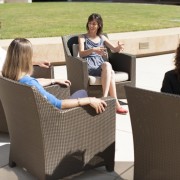



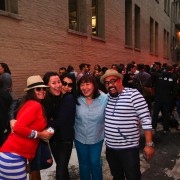






































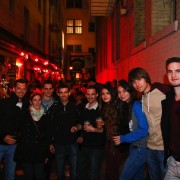
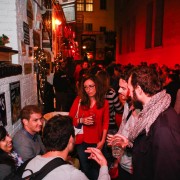













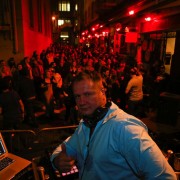



















































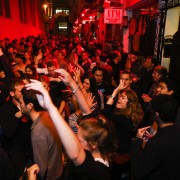







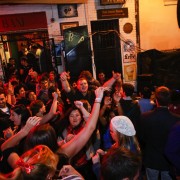
















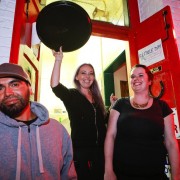










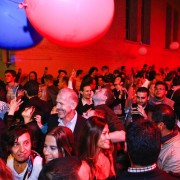



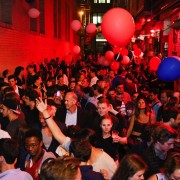






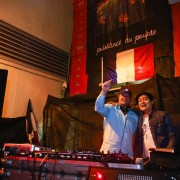















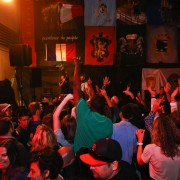









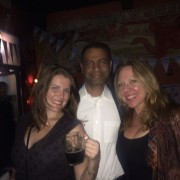
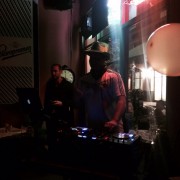





















 San Francisco – Hanna Sophie Simmons and www.Expatstudy.com, German PhD
San Francisco – Hanna Sophie Simmons and www.Expatstudy.com, German PhD